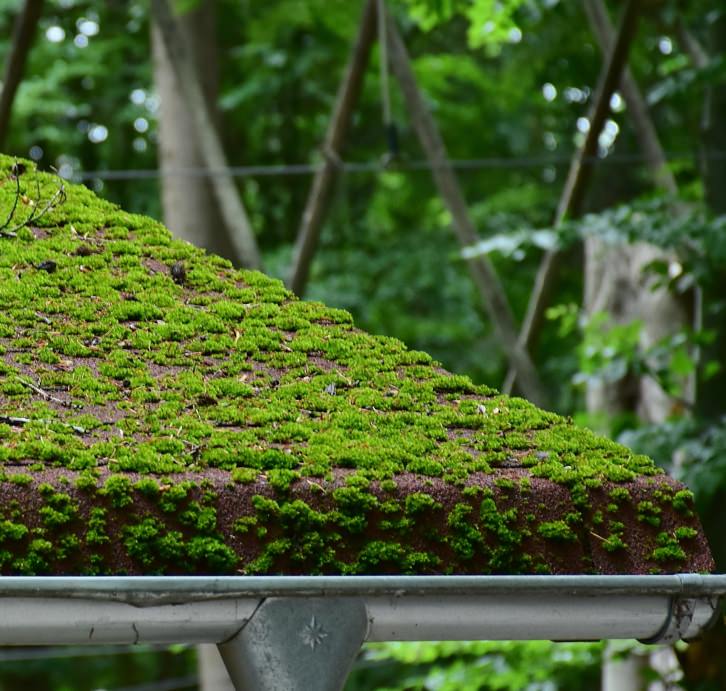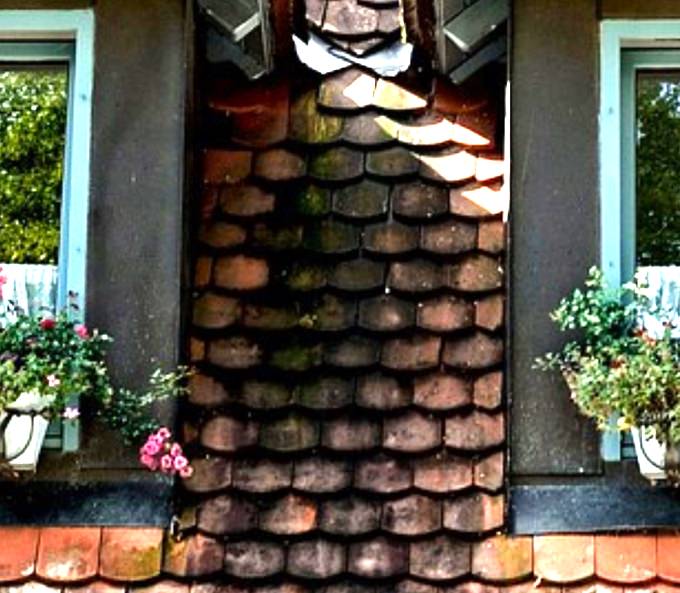How to Remove & Avoid Moss Growth On My Roof
Posted on Wednesday, February 9th, 2022 | 2,875 views
 If you have moss on your roof and want to get rid of it without it growing back again, this article will show you how to without spending a lot of money. Moss can accumulate on all types of roofs including asphalt shingles, concrete tiles, wood shake and even aluminium.
If you have moss on your roof and want to get rid of it without it growing back again, this article will show you how to without spending a lot of money. Moss can accumulate on all types of roofs including asphalt shingles, concrete tiles, wood shake and even aluminium.
Why Does Moss Grow On My Roof
Moss can grow on the roof of a home for several reasons and at times it’s unavoidable. Moss isn’t the only invasive plant that can grow on a roof, but other species like lichens, algae or fungal growth can grow on roof shingles and cause the same type of issues.
What causes roof moss growth
The causes of moss growth on a roof is not really that complicated. Moss growth usually occurs on areas of a roof where there is lots of shade and little to no sunlight is getting through causing moisture regularly builds up. It’s this moisture that facilitates the moss and fungal growth which can spread to other parts of your roof and even weaken shingles or cause roof rot.
Direct sunlight is important
If there is always direct sunlight on all parts of your roof during the day, the chances of moss growth are at a minimum but if trees or bushes or other structures are in the way, moss growth is possible. In situations where trees are blocking sunlight, a lot of roof maintenance can be avoided if the trees or branches are removed.
Can Moss and Fungi Damage My Roof?
 Eventually excessive or unchecked moss growth can facilitate enough wear-and-tear on a roof to the point that it becomes damaged by either too much weight, water/moisture leaks and as previously mentioned it can cause roof rot which can lead to all kinds of structural damages and even the need for roof replacement.
Eventually excessive or unchecked moss growth can facilitate enough wear-and-tear on a roof to the point that it becomes damaged by either too much weight, water/moisture leaks and as previously mentioned it can cause roof rot which can lead to all kinds of structural damages and even the need for roof replacement.
Issues with shingles or metal roofing
Also, when moss spreads, it create soil and attracts debris that traps water and turns the roof into a breeding ground for more moss and fungi growth. It can cause shingles or metal roofing to raise and accumulate more water and debris. This growth also quickens the decomposition of shingles and can affect other parts of the roof’s structure.
Drainage issues
With too much moss and build up of debris, your roof can start to develop drainage problems. With continued moss growth normal drainage tracks get clogged or obstructed which leads to a continued excess of water and moisture. In the winter these drainage issues can lead to the increase of ice damns and cause other expensive structural issues.
How to Remove and Kill Moss from a Roof
It’s not too hard to remove moss from your roof and make sure it doesn’t come back. If you’re able to get on your roof, start by loading up as much moss as you can by hand and tossing it into a garbage bag or bucket.
Collect the moss and debris
Once most of the heavy moss is removed, get a scraper or a painter’s putty knife and collect and bag as much of the remaining debris as possible. If you have a power washer you can do all of the above without collecting the moss. Just be careful not to ruin or destroy your shingles or any other part of your room in the process. If you use a power washer, try to set up your moss removal task during mid morning on a summer day so that your roof has the rest of the day to dry properly.
Controlling and preventing future moss accumulation
Once all the moss and debris has been removed, you can clean the area with a Zinc Sulfate and water mixture, or use a mixture of Potassium salts of fatty acids. Either of these two mixtures will kill the moss and prevent future growth.
You can also use a mixture of table salt and water and spray the solution onto the moss before removing it.
Home Depot and Rona both have products that are ready made and only need you to apply it to your roof yourself. A popular brand to look into is a moss removal product called Spray and Walk Away.
Before you trek out on to your roof to clean up the moss make sure of the following:
- your shoes have reliable traction
- you have a stable ladder to mount the roof
- extend the latter 3 feet above the roof line
- use a bucket and rope to carry your tools up to the roof
Once the moss and fungi are completely removed, start to focus on why the moss is accumulating and what can be done to mitigate the problem. If you live locally, you can call your Burlington roofers to have them inspect the problem for you and provide you with a viable solution.
Is Moss Growth Harmful or Beneficial?
Moss is not harmful at all but it’s not the best plant to let grow on a rooftop—moss or any other plant for that matter. To keep your roof in top condition, safe and functioning properly, it is important to keep it free of debris and this includes regularly cleaning your eavestroughs and performing seasonal maintenance on your roof too.
Read More...
 Desi's Roofing has been providing high quality roofing services in Burlington since 1959 on a foundation of quality work and customer service. We publish these articles in order to help our customers and casual readers to get the most out of their roof and learn to manage and maintain it over the years.
Desi's Roofing has been providing high quality roofing services in Burlington since 1959 on a foundation of quality work and customer service. We publish these articles in order to help our customers and casual readers to get the most out of their roof and learn to manage and maintain it over the years.
If there is a particular subject you'd like us to write about feel free to contact us at 905-319-0880 anytime.
Leave a Reply